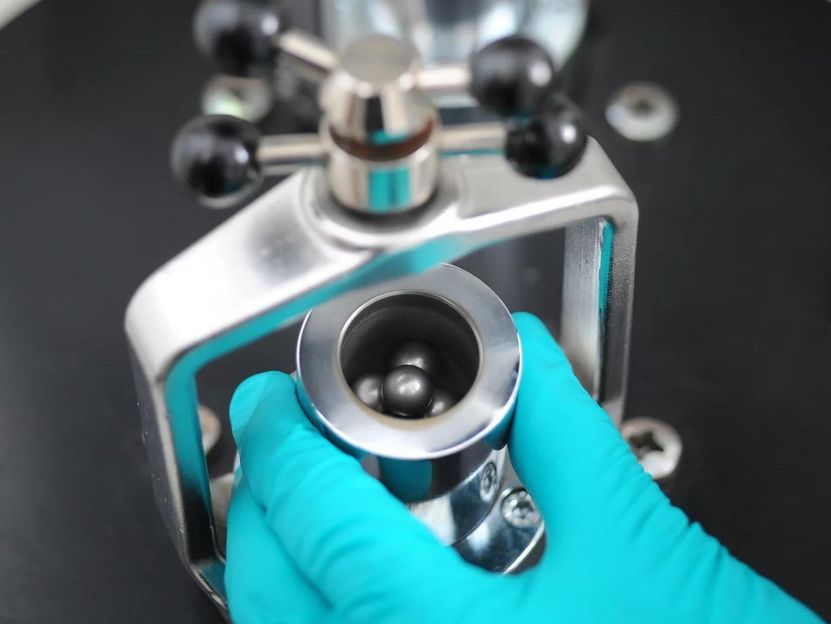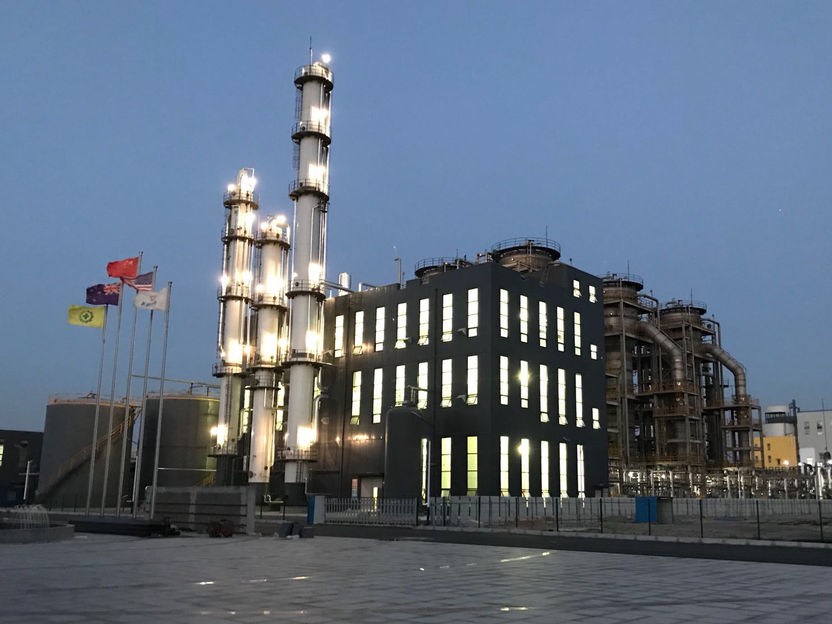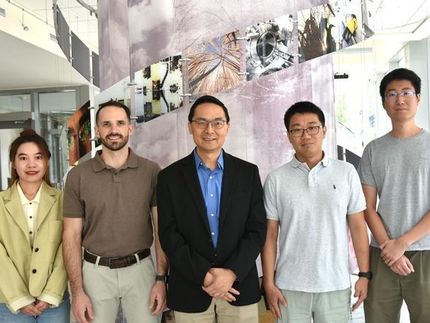More Sustainability with Mechanochemistry
Research project will develop new environmentally friendly methods for manufacturing active pharmaceutical ingredients using mechanochemistry as a disruptive technology
Flour, coffee or spices: Many people know the principle of a mill from the kitchen. But special mills are also used for research purposes in the laboratories of the Max-Planck-Institut für Kohlenforschung. The scientists are convinced that mechanochemistry can make the chemical industry more sustainable.

Ball mill
Frank Vinken, Max-Planck-Institut für Kohlenforschung
How is it possible to make the production of chemicals less expensive and, above all, more sustainable? This question is playing an important role in the chemical industry and in pharmaceutical companies. Scientists at the Max-Planck-Institut für Kohlenforschung are doing their best to make chemical reactions as environmentally friendly and economically viable as possible - not only in the lab, but also on an industrial scale. For one of those projects the Felderhoff group, Department of Heterogeneous Catalysis, has now received a grant of 500,000 euros. Ball mills play an important role in this case.
"We are just getting started with our new research project named IMPACTIVE," explains Michael Felderhoff. This project is about transferring mechanochemical processes to large-scale production. IMPACTIVE combines the expertise and knowledge from two COST networks and will develop new environmentally friendly methods for manufacturing active pharmaceutical ingredients (APIs) using mechanochemistry as a disruptive technology. The advantages of mechanochemistry include: no solvent use, high efficiency, low cost, lower energy consumption and lower CO2 emissions. Mechanochemistry uses mechanical processes such as ball milling, twin-screw extrusion, acoustic resonance mixing and spray drying to trigger chemical reactions. The principle of a ball mill to activate a chemical reaction is quite simple, for example. Reagents are placed in a grinding chamber together with grinding media. Through rotation or vibration, collisions occur between balls and chemicals. By transferring mechanical energy to the reagents, they are activated and a chemical reaction can take place.
With the help of such a ball mill, a team at the MPI has recently succeeded in synthesizing ammonia under much milder conditions than with the commercial Haber-Bosch process. The researchers were thus able to show that mechanochemistry can also offer an interesting perspective for economically important products such as ammonia. "It is therefore obvious that other research projects are having a look at mechanochemistry," explains Michael Felderhoff.
The European "IMPACTIVE" project involves 18 partners from science and industry with a project duration of 48 months. The work of the "Mech@SusInd" (Mechanochemistry for Sustainable Industry) group within the COST research network is similar. This network, which has been in existence since 2019, currently includes 38 participating countries and 87 university and research institutions worldwide. "During this time, we have built a multidisciplinary network of European scientists, engineers, technologists, entrepreneurs, industrialists and investors," says Michael Felderhoff. Again, the long-term goal is to increase the use of mechanical activation in the production of chemicals.
One thing is clear, Michael Felderhoff believes: If the chemical industry wants to continue to play a leading role in developing key technologies for the major challenges facing our society, new paths must be taken. Felderhoff and the other members of the Mech@SusInd group are convinced that mechanochemical processes have the potential to change chemical production processes and make them more environmentally friendly.
Other news from the department science

Get the life science industry in your inbox
By submitting this form you agree that LUMITOS AG will send you the newsletter(s) selected above by email. Your data will not be passed on to third parties. Your data will be stored and processed in accordance with our data protection regulations. LUMITOS may contact you by email for the purpose of advertising or market and opinion surveys. You can revoke your consent at any time without giving reasons to LUMITOS AG, Ernst-Augustin-Str. 2, 12489 Berlin, Germany or by e-mail at revoke@lumitos.com with effect for the future. In addition, each email contains a link to unsubscribe from the corresponding newsletter.
Most read news
More news from our other portals
Last viewed contents
Xention and Grünenthal enter Drug Discovery Collaboration in Ion Channel Research - Research collaboration to focus on development of novel pain therapeutics
Category:Neurons
CHMP confirms PRAC recommendations on Kogenate Bayer/Helixate NexGen - Benefits continue to outweigh risks in previously untreated patients
Meninges
DPZ Signs License Agreement with Biogen Idec






















































